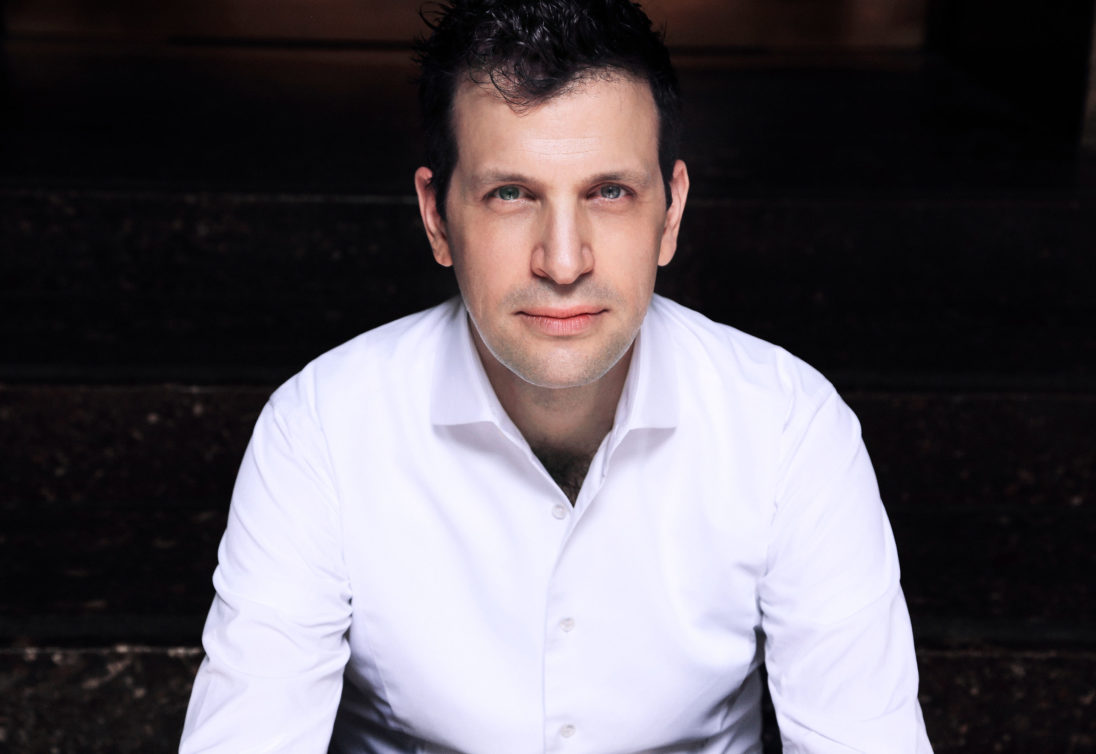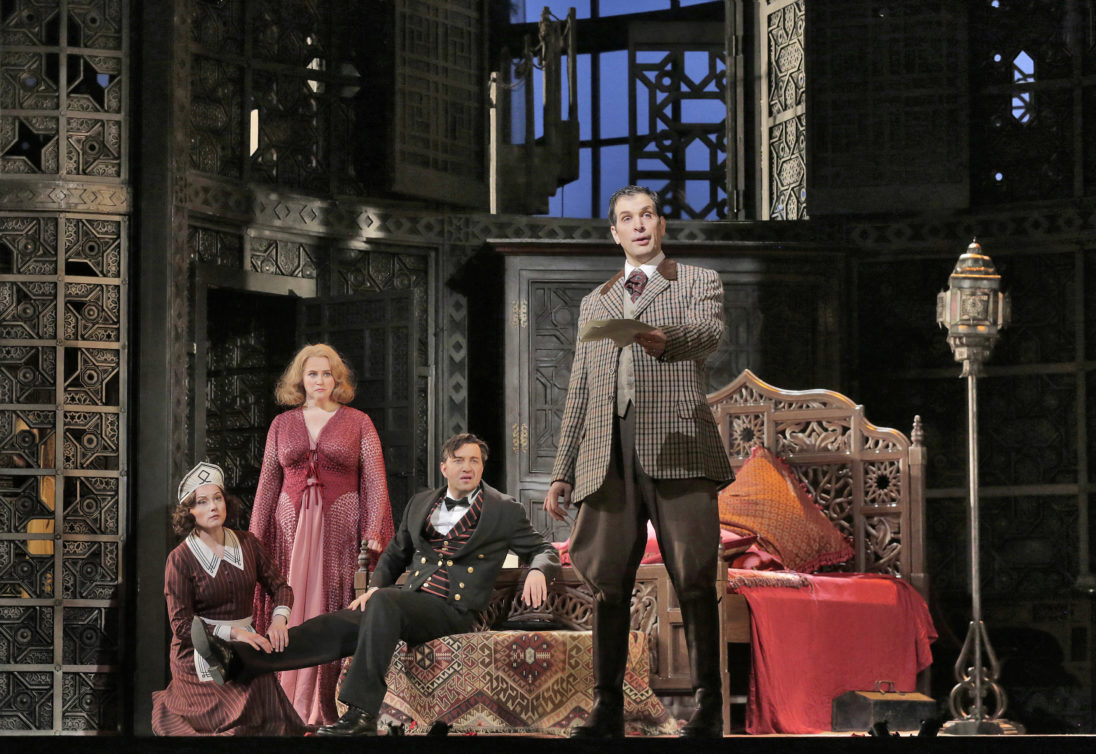Opera With Pearls: Thoughts On Fidelio And Opera World Day – An Interview With Luca Pisaroni
ScrollWhen great opera singers make appearances in Montreal, I really try my best to go see them perform. So when I heard that Lise Davidsen, Michael Schade and Luca Pisaroni were to perform Fidelio at Maison symphonique de Montreal with Yannick Nezet-Seguin and the Orchestre Metropolitain’s, not attending a performance was just not an option.
And it gets better guys.
Thank God for social media, seriously. I knew someone who knew someone and after a few DMs, was able to get a private interview with Italian bass-baritone Luca Pisaroni. I met him and his wife Cate (find out at the end how Cate is just as awseome as Luca!) at their hotel around 6pm the day of the first performance of Fidelio. They told me right away that we wouldn’t have much time so I went straight to the point and got started. Sorry – not sorry – if the questions jump from one topic to another.
How do you feel about the performance tonight?
Luca Pisaroni: Terrified. I’m always nervous, despite the fact that I have been performing for 20 years. I always have it. I can quote you Pavarotti from an interview where he said: The day I don’t have nerves, I will stop singing. Because it is not right to be in front of an audience and not feel some kind of excitement, butterflies in your stomach. I promise you, there is always 2 minutes before I go on stage where I say Why am I doing this, I wish I worked in an office! Obviously, it is because the expectations are so high and you want to do well. But it is not an energy that paralyzes me, more like a kind of fear that makes you do right things, makes you focus.
Why do you believe that the opera Fidelio is relevant today?
LP: It is relevant because it’s an opera that talks about such basic feelings of the human experience. It’s also relevant to prove that society that has been putting women down for centuries. Women in opera are much more modern than we give them credit for in the sense that here you have Leonore that dresses up as a man to save her husband. That’s pretty brave! And so, it addresses themes like freedom, love, evil against good, that anyone can relate to today.
The thing that interests people in opera is not just the plot; what people want is the adventures that the character goes through. Those kind of situations have no time, everybody can relate to evil vs good, to a woman being courageous and saving her husband.
The great thing about opera for me is it is a musical art form. Those who do not speak German, you won’t understand a word in this opera, but there are moments where you will be moved and it doesn’t matter, it’s irrelevant that you don’t understand the words. Because Beethoven composed certain chords instead of other ones, the music captures the emotions and you understand immediately what the character is going through .
There is this assumption that you need to know a lot to appreciate opera, and it’s absolutely crap. It is completely unneccessary and I will tell you my story.
I am Italian , I had never heard Wagner in my life and I didn’t speak a word of German. I went to La Scala and there was Die Walkurie. And I went five times. There was something about the music that just resonated with me.
I wish people would stop thinking that you need specific knowledge about opera to appreciate it, and to instead, just be like children. Go, and let yourself be surprised by what you are going to hear.
What does World Opera Day mean to you?
LP: Oh I think it should be every day. I think that our duties is to widen our audience and allow people to get in touch with this artform. You know the thing is that sometimes we forget just how much this artform is interesting and amazing. I was doing Le Nozze di Figaro in London and it was a matinee with only kids from 8 to 13 . I tell you, it was the best audience I ever had in a theatre. Obviously they didn’t speak Italian, but you could tell that they were captivated.
So I think if one or two in the audience decided that day to dedicate their life to this artform, I think my objective is reached. It’s an amazing thing to dedicate your life to bring back to life these pieces that were composed hundred years ago and make them relevant to the audience today.
Can you tell me more about Opera for Peace?
Chatdopera: I noticed that we announced Opera for Peace today on World Opera Day, but I only saw a few posts here and there on Instagram.
LP: It’s a new endeavour. We are trying to obviously reach new audiences, but more importantly, to use opera and music as a mean to learn how to live together even if we don’t agree on every subject.
The great thing about opera is it forces you to be able to reconcile issues with other people. This is what we artists do, it’s an effort that we all make when creating an opera production. When you go to a rehearsal, you have some ideas, and the conductor has different ideas, and then you discuss and you find a common point. Then you do an ensemble and you because your line is not as important, you sing softer because, let’s say, the soprano’s line is more important at that moment. Working like this helps you understand life as compromise, respecting what other people do, find a common ground all parties agree.
This idea behind Opera for Peace is to do concerts, classes, and masterclasses to promote the fact that opera is an example on how to live in harmony, achieve common goals and learn from each other. It is starting in Europe at the moment, but people are very excited about it and there will be a lot of things happening. The mission statement, partners, ambassadors, and events can be found on operaforpeace.org. You can ask my wife, she knows everything. (Cute!)
Montreal just absolutely loves maestro Yannick Nezet-Seguin. How is it to work with him?
LP: Who doesn’t love Yannick? My first time working with him was in Baden-Baden, singing in Don Giovanni for Deutsche Grammophone, and then we did Le Nozze di Figaro.
Chatdopera: What is special about him as a conductor, as an artist?
LP: It’s his energy and his contagious love for making music. The thing is Yannick is somebody who takes the energy from the music, and somehow, as a catalyst, distributes this to everybody. This kind of light when he conducts that is so contagious that every time you do it, you tell yourself omg, I need to be the best I can be. He has an attention to details and he is open to your suggestions. It’s a really pleasant, fulfilling collaboration. That is what makes it fun. I never see him coming to a rehearsal saying this is how it is going to be , it is always like he has a roadmap of how the opera is going to take shape, but he is open to your suggestions. And that makes our job incredibly satisfying.
I was told you have a pretty busy weekend. How do you manage your different engagements?
*Backstory: Luca is flying between Montreal and New York City all weekend, for the performances of Fidelio at the Maison symphonique de Montreal, and rehearsals for Figaro in Le Nozze di Figaro at the Metropolitan Opera.
LP: It wasn’t a surprise, that was always the plan. I am not performing in NYC, I am rehearsing so it doesn’t require my full energy because I don’t have to sing full voice.
Chatdopera: Do you feel like your mind is in two places?
LP: Never. Figaro and Pizarro are such different characters. Even when I did Figaro and the Count, people asked me if I got them confused. It’s impossible because they are such different characters. By the time you do them, your body and your brain somehow opens a different hard drive.
It’s interesting because I did Figaro more than 150 times (what?) and when I did the Count, in the 2nd act especially, I thought I’m going to make so many mistakes. It never happened and you know why? Because when you are trying to be the character, your brain cannot mix it up.
I say this now, but when I wake up tomorrow morning to take a flight at 6am, I’m going to think but whyy?
What advice would you tell your younger self?
I love that question. I would tell my younger self that this kind of life is absolutely nothing like what you think it is going to be. Nothing. It is so much more demanding and so much more complex than just being on a stage and singing.
The thing I discovered is that sometimes you think you’re ready, like when you graduate, you think that’s it, I’m ready. The truth of this job however is that the work never ends and to be honest, the amount of work that goes into it is much more than I ever thought. Because you change, your body changes, the repertoire changes. Opera is more than just learning notes, it’s about understanding the piece, what you want to say through the character. This really requires an incredible amount of work. I’ve always been a hard worker, but I never realized how much work it would take.
When I did the world premiere of The Phoenix at the Houston Grand Opera, my first one, I knew it would be a lot of work, but it’s never as much as I thought. It really is a mountain of work. And people see the tip of the iceberg, and the submerged part that is voice lessons, coachings, music rehearsal, orchestral rehearsal, stage rehearsal, the number of times when you doubt what you’re doing, people don’t see it. They only see the end result.
So you need to learn to deal with this humongous amount of work, to be able to say Ah, today was not bad. That’s my attitude. As long as you keep the level of sucking at the minimum, the objective has been achieved.
Opera Power Couple
I couldn’t not give a special mention to his wife Cate for helping coordinate this interview. These two are quite the Opera Power Couple! Cate manages Lenny’s studio, a marketing and communications company that creates websites for world famous opera singers such as Thomas Hampson and Joyce DiDonato. Together, they have two wonderful dogs, Lenny and Tristan.

